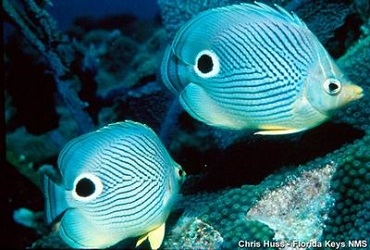句子:
Don’t feel sad. This is not the only fish in the sea
誤譯:
別傷心,這又不是大海里唯一的魚。

正譯:
別難過,這又不是什么稀罕的東西
翻譯加油站:
英國是一個島國,因此英語里有很多關(guān)于fish的諺語。原文不太可能真的是在說魚,因為誰都知道大海里有的是魚,正如英語諺語所說:
There are plenty more fish in the sea.海里的魚多著呢!
There are as good fish in the sea as ever came out of it.海里有的是魚,永遠打不完。
實際上這兩句諺語也只是拿魚作比方,常用于勸說失戀的人,意思相當于“天涯何處無芳草。原文里not the only fish inthe sea的意思是“并非僅有的/唯一的/稀罕的(東西)”。
漢語里很少把人比成魚,可是英語里卻有許多這樣的比喻,如
queer fish (怪人)
dull fish (頭腦遲鈍而乏味的人)
dumb fish (呆頭呆腦的人)
loose fish (浪蕩子)
cool fish (冷靜大膽或厚顏無恥的人)
cold fish (冷冰冰,不同別人來往的人)
shy fish (羞答答的人)
coarse/rough fish(原指沒有人要的魚,現(xiàn)偶爾也指沒人要的貨色或人)
fish out of water (不得其所,處在陌生環(huán)境中的人)
poor fish (愚蠢可欺的可憐蟲)等,4月1日愚人節(jié)上當受騙的人也被稱做April fish, fish wife不是打魚的“漁婆”,而是“罵街的潑婦”。Fish begins to stink at the head,也說 The fish always stinks from the head downwards或 Fish goes rotten by the head,是比喻說“上梁不正下梁歪”,尤指國家之腐敗先從統(tǒng)治階級開始。有些英語比喻和諺語從字面就可以了解其意思,如fish in the air, cry a stinking fish, He who would catch fish must not mind getting wet, It is a silly fish that is caught twice with the same bait, Never fly a fish till it’s caught, The best fish smell when they are three days old。有的也許費解,比如She fed the fishes不是“她在喂魚”,而是“她暈船”,也可能是說“她葬身魚腹”。











